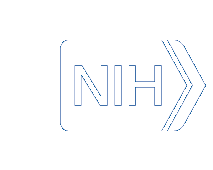Resources
Lesson 6: Fight Back, Fight AIDS
RETURN TO CLASS RESOURCE OVERVIEW
Lessons
Read More
The first lesson explores how historical interpretations of AIDS changed dramatically in the first years after its identification, just as our understanding of other infectious diseases have shifted and evolved over time. Close
Read More
The second lesson focuses on analysis and interpretation of the government’s response to the AIDS epidemic following its emergence.Close
Read More
The third lesson explores the subject of visual culture and the role of imagery in the history of responses to AIDS by deconstructing the various strategies used in public health posters as tools of public education designed to encourage disease prevention.Close
Read More
The fourth lesson focuses on analysis of how public health officials and activists created messages designed for target populations. Close
Read More
The fifth lesson examines how and why scientists struggled to understand AIDS in the 1980s. Against the backdrop of fear and misunderstanding that permeated society, scientists’ initial findings sometimes produced unintended political consequences. Close
Read More
The final lesson explores how AIDS presented unprecedented challenges and opportunities for activists. The lesson pays particular attention to how activism and advocacy shaped public policy and responses to AIDS.Close
Introduction
This lesson begins with an analysis of a paradox identified by Dennis Altman: even though the AIDS epidemic occurred in a period when social conservatives were politically dominant in most Western societies—increasing the stigma against homosexuals and homosexuality—it also translated into much greater recognition of the homosexual community and a homosexual movement, in most Western democracies. Steven Epstein’s article on lay expertise identifies one area in which American AIDS activists proved to be particularly successful, as credible participants in the search for effective treatments, and the process of knowledge construction that much of that work entailed. Joshua Gramson examines the strategic actions of one of the most prominent activist AIDS organizations—the AIDS Coalition to Unleash Power (ACT UP)—in an effort to explain the particulars of AIDS activism, including the common tropes of boundary-crossing and the contesting of images. The primary sources listed below encourage students to engage and analyze this activist work.
Read More
Students should complete the secondary source readings before visiting the website AIDS, Posters, and Stories of Public Health: A People’s History of a Pandemic. Discussion questions may be provided to students in advance. Posters can also easily be incorporated into the lesson to encourage discussion. Oral history interviews from ACT UP may be used to supplement or replace Joshua Gramson’s article.
Close
Readings
- Secondary Sources:
- Altman, Dennis. “Legitimation Through Disaster: AIDS and the Gay Movement.” In AIDS: The Burdens of History. Edited by Elizabeth Fee and Daniel M. Fox. Berkeley: University of California Press, 1988, 301-315. http://publishing.cdlib.org/ucpressebooks/view?docId=ft7t1nb59n&chunk.id=d0e5346&toc.depth=1&toc.id=d0e5346&brand=ucpress.
- Epstein, Steven. “The Construction of Lay Expertise: AIDS Activism and the Forging of Credibility in the Reform of Clinical Trials.” Science, Technology, & Human Values, 20 (Autumn 1995): 408-437. https://pubmed.ncbi.nlm.nih.gov/11653331/. (accessed 10/18/2021).
- Gramson, Joshua. “Silence, Death and the Invisible Enemy: AIDS Activism and Social Movement ‘Newness.’” Social Problems, 36 (October 1989): 351-367. https://repository.usfca.edu/cgi/viewcontent.cgi?article=1002&context=soc
- Primary Sources:
- Supplemental Reading:
- For an introduction to the politics of scientific knowledge, students may be asked to read Steven Epstein’s article on the “crisis in credibility” that helped inspire the AIDS activist movement. Epstein employs the sociology of scientific knowledge as a tool for critically examining scientific research.
- Epstein, Steven. “Introduction.” Impure Science: AIDS, Activism and the Politics of Knowledge. Berkeley, University of California Press, 1996, pp. 1-25. https://pubmed.ncbi.nlm.nih.gov/11619509/. (accessed 10/18/2021).
Discussion Questions
- What is the paradox identified by Dennis Altman and how does he explain it? How did different conceptions of public health come to a head over the issue of testing? Did AIDS improve gay rights or impinge them? What were the consequences of cooperation between gay organizations and the state?
- How and why did AIDS treatment activism become a major issue? How did AIDS treatment activists constitute themselves as credible participants in the process of knowledge construction described by Steven Epstein? What does Epstein conclude about participatory knowledge making in biomedicine? How can it be argued that AIDS treatment activism has had broader impacts on biomedicine?
- How did ACT UP develop and execute its agenda? What obstacles did the group face? What techniques did the group use and how did their activities and messages promote boundary-crossing and the contesting of images?
Supplemental Question:
- What factors were involved with the “politics of trust and distrust” identified by Epstein? What is involved in the process of “scientific fact making” and how are credibility and trust cultivated or determined? What is the process of “knowledge-making from below” and what problems are involved with it? What was the relationship between activism and science in the case of AIDS?
